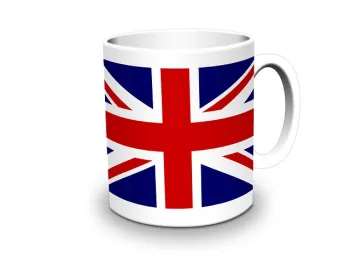You might have noticed that the UK is heading to the polls on 8 June.
Elections of course create a great deal of uncertainty. One of the few things we can be certain of is that whichever party (or coalition of parties) succeeds, the new UK government faces significant challenges going forward, not least of all negotiating Britain’s exit from the European Union whilst establishing a strong footing on the world stage. The question is, however, with each party focusing on Brexit and the economy, how will the manifestos affect UK businesses?
The Institute for Fiscal Studies published its analysis of the Conservative and Labour Party manifestos on Friday 26 May and criticised both heavily as failing to address the long-term challenges faced by the country. This blog picks out some of the key areas highlighted in that report most likely to affect UK business.
Key policies affecting business
Conservative
The first of the key Conservative promises affecting business is a renewed commitment to reduce corporation tax to 17% by 2020, in line with the government’s current plans. A cut to corporation tax is likely to be great news for UK business, providing an opportunity to increase margins and increase working capital. However, that tax cut will have to be recouped elsewhere.
Conservatives have not provided anything particularly new in the manifesto, maintaining that there will be no increase in VAT rates. However, they have remained silent on areas such as National Insurance Contributions. Whether this is the Conservatives distancing themselves from David Cameron’s 2015 “triple tax lock” commitment to fix income tax, VAT and national insurance contributions rates for the five years following the general election remains to be seen. Other pledges in respect of tax, which will have a greater effect on individuals and may indirectly benefit business through increased consumer spending, include raising the personal allowance to £12,500 and raising the threshold for top rate taxpayers to £50,000 by the same year by 2020.
The Conservatives have further outlined reform in respect of the rules governing mergers and takeovers. One key aim appears to be a facilitation of public confidence in the M&A sector, seeking to reduce concerns over aggressive takeover deals, in particular takeovers by foreign companies. The changes will require companies to be clear about their intentions for a target business and any undertakings they make will automatically be legally binding. According to Deloitte, 2016 saw “companies increasingly turning to M&A and corporate venturing to harness growth” and M&A activity did not slow in the wake of a Brexit vote. However, with economic and political uncertainty set to be a central theme for 2017, it will be interesting to see what impact (if any) these changes have on the appetite for M&A transactions.
Labour
The Labour Party’s business tax policies are wider-ranging. A Labour victory this Thursday would see an increase in corporation tax for businesses to 26% by 2021 for larger firms and to 21% for smaller firms with profits below £300,000 a year. This increase would seek to raise £19.4bn a year, providing funds for additional public spending. Through increasing tax on big businesses, a Labour government would seek to tackle social problems. Corporation tax has been steadily decreasing since the coalition government of 2010 and as such this would be the first significant increase since the economic downturn. However, the Institute of Fiscal Studies suggests that raising the headline figure of £19.4bn annually in the long run is unlikely and uncertain at best, as corporation tax makes investment less profitable, therefore creating lower levels of investment and in turn reducing national income.
In addition, the Labour manifesto sets out a clear intention to extend the 0.5% stamp duty on shares to derivatives and other securities and a total abolition of the intermediaries’ exemption, potentially a large revenue maker. Labour state in their manifesto that the aim of the reform is to ensure “that the public gets a fairer share of financial system profits”. As the increase will effectively add a charge to the trading of such products, it is also likely to hit those with private pensions who regularly trade in derivatives and other securities. Labour would also reverse the planned cut in the rate of the bank levy introduced by the Conservatives, which was set to be reduced from 0.21% to 0.1% by 2021.
Labour has also indicated more wide-ranging changes to income tax, setting new higher rates at 45% starting at £80,000 per year and a 50% rate starting at £123,000 per year. Similarly to the Conservative party, Labour have confirmed a commitment not to increase or extend VAT. This however is restricted to food, children’s clothes, books, newspapers and public transport fares.
Employment
Another key focus of both manifestos is employment and pay. The Conservative party aim is to increase the National Living Wage to 60% of median earnings by 2020, whilst Labour will “raise the Minimum Wage to the level of the Living Wage (expected to be at least £10 per hour by 2020) – for all workers aged 18 or over, so that work pays.”
The Labour party would also cap maximum pay at all employers at 20x the wages of the lowest earner. This would be enforced “in the public sector and in companies bidding for public contracts” according to the manifesto.
As RSM UK reported, each of the parties has also made pledges “in relation to maternity, paternity and family rights. Labour has pledged to double paternity leave to four weeks and increase paternity pay. They also say they will strengthen protection for women on maternity leave, however, they have not outlined how.”
Conclusion
Whilst making predictions ahead of Thursday would be foolhardy after recent elections, it is clear that whatever the result, the succeeding party has a tough road ahead to steady the economy and reassure business within the UK that Britain is putting its best foot forward amidst a possibly turbulent and unpredictable road to Brexit.
Joshua Headley is co-author of this article.




 />i
/>i
